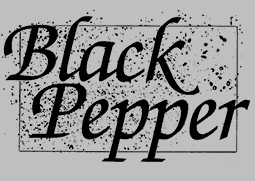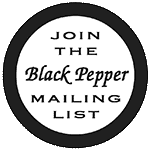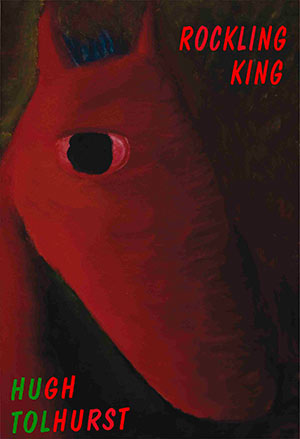 |
Rockling King : Hugh Tolhurst |
||||||
Book Description It’s a cultural paradox that your hair emits light, your eyes describe the world more nearly than the day itself, play me some mad music, darling, I’ve had it with art that explores possibilities of marketing itself, Through the accident of residing on Broadway, Elwood, Hugh Tolhurst has a song and dance verve. Rockling King continues his conversational embrace of inner city culture. His clarity of speech is often akin to a sober aside at a party. These are profoundly sane, philosophical (in the sense of corrupting the minds of the young), at times political and often acutely witty poems which engage society, culture and lived experience. Like his first book Filth and Other Poems, Rockling King should be kept out of reach of children. Hugh Tolhurst has a big future
John Forbes
Uniquely Australian Spencer P. Jones
Classical (but post-barbarian in technique) Adam Aitken, The Australian’s Review of Books
Cool like Hugh Tolhurst The Australian
ISBN 9781876044671 Published 2010 82 pgs $25.95 |
|||||||
Book Sample Broadway & Bombed I It’s like it is, it’s certainly a bit green, where the afternoon wears a plane tree dress, summer in Elwood, looking out on the corner of Broadway & Shelley Streets (I lived on the corner of Shelley and the beach once, till they knocked my flat down), here it’s more like Broadway & bombed, my life opens Friday and who gives a shit? Something funny concerning the wrong person’s name whispered in my sleep and you wake up innocent but faintly guilty knowing it was years ago & almost involved monogamy. She liked it on the floor, is probably not the way to excuse myself, though this can often be romantic. Something else I said in my sleep was that we must swim to the mainland, and I was most insistent about this, you said. Elwood being part of the mainland, of Melbourne even, either dream work or half a bottle of scotch was buggering geography. Actually, swimming to the mainland is a good title if you are a Tasmanian poet, is it not? Pardon my distraction, but should I go to tonight’s launch of Best Australian Essays 1999? I think I will. I’m not sure that is a good title perhaps Better Australian Essays? Down that line, Better Australian Poems could be one of the more begrudging of anthologies. Over lunch, Richard said, there’s a new bumper sticker (he drives fruit and vegetables to restaurants for work at present) ‘I’m a poet and I voet’ which seems apposite in a 1999 where voter fatigue has been an issue, with elections everywhere in Melbourne (well, maybe we were tired of Jeff Kennett, and perhaps Jeff.com.au was too Andrew Peacock...) though how can you get tired of a stroll to the primary school where carnivores may also procure election day sausages? Yesterday there was a great sound-bite joke from New Zealand, Labor having won government, the defeated National Party Prime Minister stood to give her concession speech commencing ‘It appears New Zealand has opted for a change’ and one of the party faithful stage-whispered ‘Bugger!’ It’s four days before my final deadline, for a manuscript made up of poems largely unwritten possibly including this one. Do I or don’t I attend 6 pm drinks for Best Austrian Freeloaders 1999? Yes. II In Victoria (in my borough) I vote for the Trams man in the upper house, he has an Italian name (is a visual artist, I think) and all his policies concern trams. He has yet to win, neither did the ‘Dare to be Different’ candidate for whom I handed out rather cool looking How-to-Vote cards at the 1992 Federal Election, we drank Melbourne Ports dry in a St Kilda bar afterwards, and as I recall, he confessed to shoplifting one coveted hardback from the bookshop where I worked. I liked him instantly and he had some good policies, but the day at Middle Park Primary was guilt-inducing for me too. Standing for a time (in my uniform black) next to The Hon. Frank Crean, who remembered me from the bookshop (a lovely old customer), who was Whitlam’s Deputy Prime Minister and whose son is also a senior Labor Cabinet figure, well, the fact I wasn’t enrolled spun through my mind. So eventually democracy gained a new adherent (signed up you brave the fifty dollar fine for forgetting it’s election day) and the next Federal election was my first as a voter. Unexpectedly the new voter was in Sydney, and my day included battling Mardi Gras weekend traffic and lunch to meet the girlfriend’s parents. The most convenient place for interstate voters was in the Town Hall, you went down a flight of steps on the left (I think) and as I mentioned over lunch to her parents, my first experience of the voting queue involved noting that everyone else in the lower Town Hall was either voting in a sailor suit or in drag. The moral of the story is that John Howard won. Launch Speech
Jennifer Strauss 5 October 2010, North Fitzroy Arms Hugh Tolhurst’s second collection takes us into a world of paradox: both realist and surrealist with, indeed, a touch of not-always-parodied Romanticism thrown in (a bit like his beloved St Kilda, I suppose). The poems offer aphorisms but subvert argument, acknowledge chaos, express it indeed, but at the same time confine it, weaving around it a literary web of wit, wordplay and form. It is very literary: there are translations from the classics, very good translations I think, from Catullus, the urbane wild man of Roman poetry, there are decentred riffs on poems by big names like T.S. Eliot and there are above all echoes of the New Australian Poets of the 1970s in the recurrent references – both in homage – and disparagement – to fellow poets and the writing of poetry). On such homage see “John Forbes through a fringe of Leaves”, pg 10. Yet, even as in that poem, the love affair with poetry’s ‘bobydazzling’ power contends with impatience with the postures and paraphernalia of literariness and the poet’s own involvement therein, hence this passage from “Something about the Music”: You read the fashionable literary rag and wonder why the poets are all doing écriture that sounds surprised at its own Frenchness, the games the deft sentences play falling out from a life but ultimately pleased with that life, is that too harsh? Is my spleen showing? Jesus! How can you feel mal de siècle when the fucker hasn’t started. I’d like to like the new metaphors better, I really would, and then I could write them too, you know ‘The house played at happy families although it was an orphan etc.’ Avidly reading Watten, Hejinian, Silliman, etc. in the early 1990s, I wrote some language influenced poems about trying to wake my mother up. And the elder statesmen too, read elsewhere, well, the polish seemed wasted on the shoes... Being out of love with poetry, might have started with that review, but it isn’t entirely unpleasant. How literary the kisses of poets are, the way their jokes seem so studied, as if after dinner you should write them down. The relationship to music is less ambivalent than that to poetry. For those who’ve known Hugh over the years, it seems strange that his allegiance to rock music has been written out of the biographical notes. But it’s there in the poems, typically in teasing form in the title poem which becomes the title of the book. “Rockling King”: This isn’t good old Dr Johnson on metaphysical poetry – the application of violence to link together heterogeneous Images. This is a linking of words that – unsituated – without context remain simply a teasing of the mind. Situated in the poem we begin to perceive a literal rockling, a fish in the pan so to speak and the poet as king-chef. But he seems definitely the King of a Rainy Country, and in a sense both poet and not-poet. With attention back on the poet we may re-think ‘rockling’. We know ‘ling as a diminutive’ so is this poet-king really only a little rocker? Enough, enough: poets don’t really enjoy hearing their word plays disentangled. And audiences don’t enjoy long speeches: so I propose finally just to read “Rockling King” and the poem which is my favorite (perhaps because it reflects my state of mind when completing the current politics of Oz), namely “Ode to Confusion”. |
|||||||

